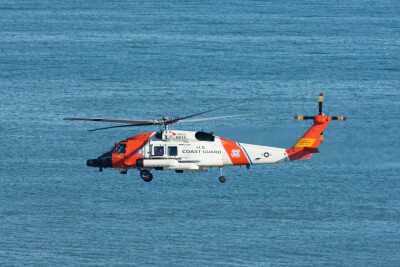Southeast Alaska Sperm Whale Avoidance Project video www.seaswap.info
Sperm whales are no fools, as you can see in the video above. Shot underwater by a camera attached to a longline, it shows the whale closing its long mouth around a longline with a blackcod attached. Though the fish the whale targets stays on the line, the tension causes another fish to pop clean off its hook: a quick and easy lunch for the whale.
Sperm and killer whales have been a problem for Gulf of Alaska longliners whose blackcod are being grabbed — sometimes from the line or shaken off, leaving no sign of the stolen catch. Now some are about to take a big step to prevent their catch from being stolen: changing their longline gear for pots. The North Pacific Fishery Management Council approved permitting pot fishing for blackcod in the gulf earlier this week.
The change in gear wasn't an overnight decision. Gulf fishermen have been dealing with the whales for more than three decades, according to the Southeast Alaska Sperm Whale Avoidance Project. (SEASWAP is a cooperative research project involving fishermen, scientists and fishery managers to prevent whale depredation.) The problem got worse when the fishing season was expanded in 1995, because the longer season also gave the whales more opportunities, and by 1997 reports of whale depredation of blackcod from longline gear "increased substantially."
In 2003, Sitka fisherman Sean Tracey recounted a day when a 50-foot sperm whale rested up against the 42-foot Connie M while three smaller whales picked fish off the line — grabbing a third of the blackcod catch.
"They've gotten smart. You turn on the hydraulics to operate the gear puller and it's like the dinner bell," Tracey told the Alaska Department of Fish & Game.
More recently, researchers and fishermen focused on the whales' dependence on acoustics to prevent the line grabs. In 2011, as part of a $353,000 federal grant to study the amount of fish taken in the fishery, researchers tried attaching beads to lines so that a sperm whale would "hear" sablefish all along the line and be confused about where the fish actually were. Fishermen have also tried blasting heavy metal music from their boats to deter the whales.
But apparently, it's not easy to trick a whale. The problem continued, and now some see the change in gear, though drastic, as their best option to remain profitable.
Your move, whales.






